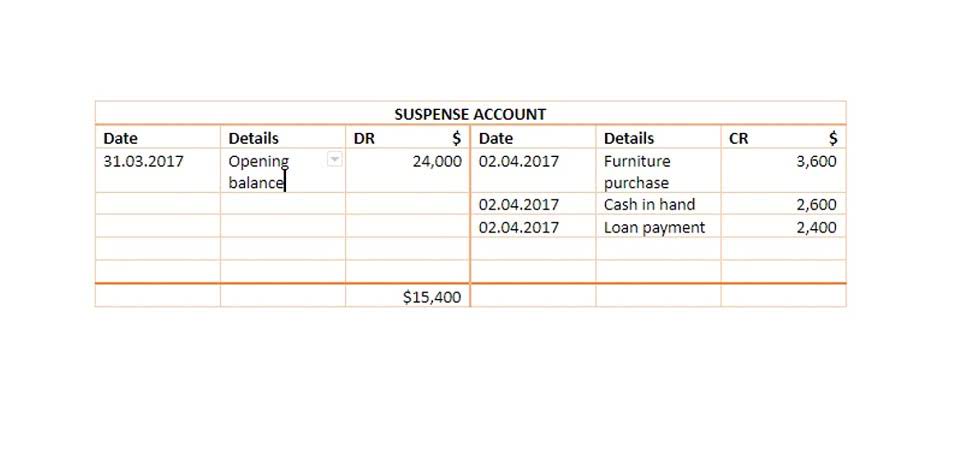
Just like your therapy patients need your professional services to live well, your bookkeeping needs regular updates to keep your business financially healthy. Falling behind on your bookkeeping means you’ll constantly find yourself rushing to catch up and file your taxes on time. Before balance sheet working with Sara, my QuickBooks was overall just a total disaster. I struggled for months, even trying to work with QuickBooks support to get it sorted, but they failed to help me. Sara helped clean up my transactions and began the process of reconciling my accounts to sort out the mess that had happened.

Balance Sheet

You’ll have your Profit and Loss Statement, Balance Sheet, and Cash Flow Statement ready for analysis each month so you and your business partners can make better business decisions. The government taxes you based on the structure of your business. Therapists operating on a small-mid business level are likely to fall under S corps, LLCs, sole proprietorships, or partnerships. Here are some best practices for safeguarding patient information and financial data. Maintaining cash flow and proper documentation is also helpful to prevent payment issues.
Essential Bookkeeping Tasks for Therapists

Many healthcare professionals review their financial statements only once a year when their accountant requests financial data to prepare their taxes. However, you can gain insight into your practice’s financial health by reviewing its financial statements on a frequent basis. Despite your knowledge of HIPAA, you may only sometimes know what constitutes a violation. For example, many therapists probably don’t realize that using online accounting software to maintain financial records and process patient payments is a vulnerability that could result in a security breach. If you’re just starting a practice, mixing your personal and professional transactions can be easy if you don’t have a separate business account.
Accounting Services
- They know how to maximize tax benefits and minimize expenses, as well as how to make your business more financially streamlined and efficient.
- In addition to expenses and operating costs, you also have to consider taxes and other financial matters.
- If you fall under these structures, you can qualify up to a 20% deduction on qualified business income.
- It’ll keep you from getting in over your head while helping you develop a strategic financial plan for accomplishing the growth you desire.
- After all, you started your practice to help people, not to become an accountant.
- However, for those private practice owners and independent therapists, running the business will also be a primary concern.
Doing so prevents you from accumulating disorganized receipts or losing documents and ensures you’re accurately tracking expenses. The chart of accounts is a categorized list of how your practice earns and spends money. It’s an important piece when setting up an accounting system. Here are some techniques to ensure timely patient payments and better manage insurance billings.
- Profit & loss statements, asset accounts, reconciliations, equity…dealing with accounting concepts can feel like learning a new language.
- Dividing personal and business finances also helps you be realistic about what you can spend in either facet of your life.
- In today’s digital age, automating whatever routine practices you can is just smart.
- We collect information from you so that we can set up your QuickBooks account.
- There’s no shame in seeking professional help to support your business.
- Some examples of accounting software include Quickbooks for bookkeeping and TurboTax for tax preparation.

As doctors, they are instantly reviewing and brushing up on treatment plans and new studies and developments. The last thing they bookkeeping for therapist need is another software that requires them to learn how to be accountants as well as counselors. Because of this, this option is likely a great fit for many therapists in private practice. Here, we’ll go over some bookkeeping best practices to help you simplify the process and avoid costly mistakes. Your bookkeeping team categorizes and reconciles your books for you every month so you don’t have to. Streamline your bookkeeping and spend more time with clients.

- For your practice’s everyday operations, that’s vital information.
- Don’t buy copy paper with your personal cash and don’t expense that Starbucks latte– it sounds like a pretty common sense concept, but many people overlook or aren’t sure.
- Use this cheatsheet to maximize your deductions and save money on taxes for your therapy practice.
- You can check out my article on tax write-offs in private practice if you’d like to learn more about the land of tax deductions.
- Accounting software can help with keeping track of your income, expenses, and payroll.
- Heard is built specifically with therapists in mind and offers personalized bookkeeping and tax services (with real humans!).
Manage your bookkeeping, taxes, and accounting in one powerful platform, surpassing DIY methods or traditional accounting services. Built for therapist entrepreneurs, our expert guidance and innovative tools save you time and Bookstime money while empowering you to build the practice of your dreams. Think of bookkeeping as the detailed roadmap of your practice’s financial health.



































